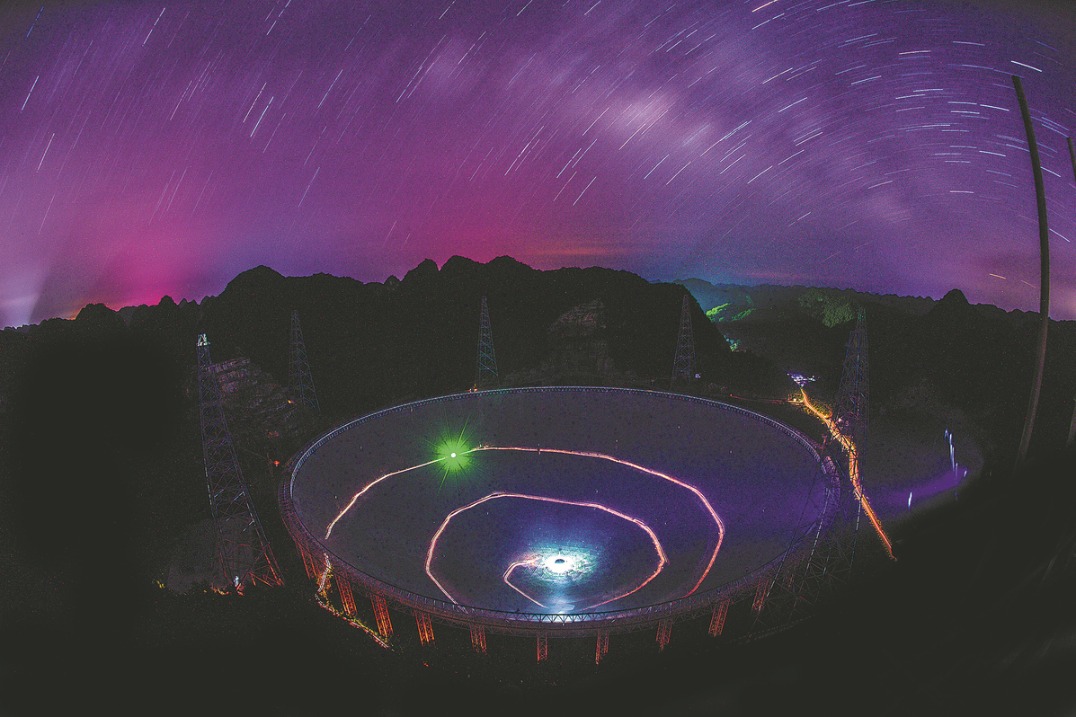I yearn for the deep, quiet mountains


Lu Zhantao, 23, intern and researcher at the Baihe River National Nature Reserve in Sichuan province
Leaping through the trees, clad in resplendent golden fur, the Sichuan golden snub-nosed monkeys that live in the mountains of Jiuzhaigou county, Sichuan province, made me exclaim, "This is the spirit of the mountains!"
Some people like bustling cities, some long for youthful campus life, but I yearn for the quiet and wild beauty of the deep mountains.
I majored in animal-related studies for both my bachelor's and master's. In March, on the recommendation of my professor, I came to the Baihe reserve in Sichuan as an intern.
I was deeply impressed the day I arrived: it was the first time I had seen wild animals, and also the first time I had seen a Sichuan golden snub-nosed monkey. Although I had seen them on TV and in books, I was still deeply attracted by their beautiful appearance.
I tried to get close to one family. They appeared very gentle, gradually drawing nearer, with the curious little baby staring at me and even sitting in front of me as if asking for food. After just a few minutes of interacting with the monkeys, I felt the deep connection between humans and wild creatures. In April, I started becoming familiar with the mountain, where more than 1,000 of the monkeys live. Every day, I climbed the mountain for an hour to reach the place where they rested, taking photos of each one of them so that I would recognize every single individual.
I also gave each monkey a name and recorded their details, such as gender, age and family group. The job seemed easy, but it was a challenge at the beginning. First, climbing the mountain was a big obstacle for me as someone from the plains. It was a test of my physical fitness.
Second, I had to start from scratch to recognize each individual.
Each monkey has a unique appearance, but it was hard to learn. I tried hard for a long time to identify them by comparing the differences between individuals. Gradually, I found a good method, which was to compare the shape of the nose, facial wrinkles, injuries and even the monkey's expressions to recognize individuals.
Of course, it was difficult to distinguish their gender. The characteristics of adult individuals were slightly more obvious, but for monkeys that had not yet reached adulthood, it required patient observation. For example, the fur of adolescent individuals covers their genitalia, while newborn monkeys would often be held in their mother's arms.
I'm just talking about regular information, not the more complicated studies that I'm supposed to complete here.
I really respect and admire Tang Yulin, the forest ranger. He has taught me a lot about the monkeys and other animals and plants. He has learned everything by living and working with the monkeys for more than 30 years. Living and interacting with wild animals in the mountains is very different from reading about them in books. Now, I can get very close to the monkey groups and they are gradually getting used to my daily presence in their home.
I will be interning in the reserve until next year. I may just be silently observing and recording the monkeys' living conditions, or perhaps working with experts and scholars who come to conduct research so I can make more in-depth observations and gain a deeper understanding of this mysterious, nationally protected monkey population. This is a very rare and precious experience for my academic career and even my whole life.
Lu Zhantao spoke with Yan Dongjie
- Media outlets urged to promote integration
- Chinese defense ministry slams US arms sales to Taiwan region
- Photo show helps Japanese see real Xinjiang
- Beijing court sees more copyright disputes settled
- Agriculture IP protection to stimulate industrial innovation
- Sun Yat-sen University Institute to boost East-West exchanges





































